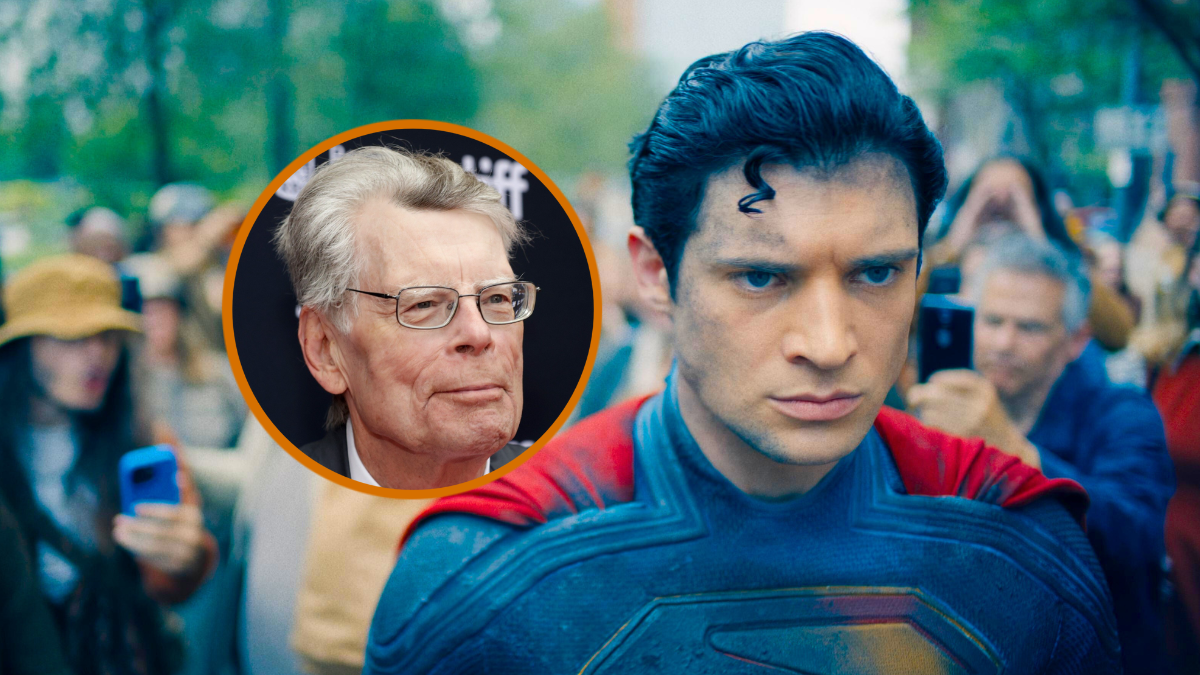
Propelled by the buzz of Stranger by the Lake, which premiered to widespread acclaim at Cannes three years ago, Alain Guiraudie returns to the festival in a main competition slot with his new film, Staying Vertical. Stranger by the Lake was an immaculate Hitchcockian thriller set on a beach frequented by gay men. Although this new film maintains Guiraudie’s reputation as an efficient visual storyteller, the pleasures of his work have become more idiosyncratic and less bound to a traditional narrative.
For a film about a frustrated screenwriter, Staying Vertical often feels like it was made by one. In many ways, it resembles the shoddy output of its protagonist. Léo (Damien Bonnard) is a struggling screenwriter who rushes his projects for paycheques and slaps together incoherent ideas to meet deadlines. Wandering the countryside as a vagabond, he meets Marie (India Hair), a single mother and shepherd on her father’s farm. The two engage in a sexual relationship and have a child together. Marie leaves Léo for no clear reason, and he is left to raise his newborn son without a mother or money.
Every conflict and relationship is vague and still at the “napkin stage” of a screenplay’s development. Léo seems to have appeared out of thin air, born as an adult right as the movie started. He is lonely but a blank slate; there is no sense of history and no explanation for his behavior. Marie never mentions the father of her two other children, and the kids never bring it up. An old bigot that Léo visits is a surrogate father for Yoani, a young gay man who has no reason to continue living with the offensive grump. The film achieves an off-kilter tone via an “inept” screenplay. This is entirely intentional and done to make something unfinished feel holistic.
The erratic mix of contrivances, underwritten characters and half-baked metaphors contributes to a unique kind of magical realism. Elements that would typically be viewed as deficiencies make Staying Vertical a fairy tale. Guiraudie’s film is grounded and illogical, playful but still not that much fun. As a deconstruction of classical narrative and sexuality, it is more academic than it is personal. The film twists our expectations and deviates from conventions. But unlike, say, Spike Jonze’s Adaptation, a clear influence on Staying Vertical, the self-reflexivity is not to immerse us in neuroses. It’s not using a complex concept to get at a simple feeling.
The characters and conflicts are established in a realistic first act, but rather than engaging with this groundwork in a usual way, the director defies what is expected. Characters behave against type and in ways that make little psychological or physiological sense. This subversion is purposeless and a consequence of Guiraudie’s misguided priorities: he has placed his ambitions over the feelings of his characters. The queer point of view, established through the fact that all the men in the film are closeted homosexuals or bisexuals, isn’t used to explore identity but to rebel against hetero-normative storytelling.
Motivated by hubris, the film sometimes works as it transitions confidently between genres, tones and images with deft formal control. There are a lot of strange things in here, including an unflinching birth scene and an attack by a mob of homeless men that is shot and blocked like a zombie attack. Yet no moment is more perplexing than a shocking and touching sequence involving an assisted suicide by way of coitus – a benediction through anal sex. Staying Vertical, which wants to penetrate sexual and cinematic norms, ejaculates images into our retinas. It leaves behind a stain that you want to immediately wash off.
Unfortunately, the film has no love for anything but itself. The combating influences don’t serve a theme or express an inner despair. After characters, conflicts and symbols have been reduced to their outer shell, there is only hollow experimentation left. It tears down classical narrative not to erect something in its place but to observe the wreckage. Staying Vertical feels weighed down when it should be light, and ironic when it should be earnest. For better and worse, the film terrorizes conventional cinema without providing any good alternative.










Published: May 13, 2016 01:34 pm